The English Bulldog Association of Finland (SEBY) and the Finnish Kennel Club are launching an extensive health-promotion project for the Bulldog. Among other things, the aim is to develop an examination that scrutinises an individual's fitness for breeding – and it would be the first examination of this kind in Finland.
The chairman of the English Bulldog Association of Finland, Pasi Apajalahti, says breed enthusiasts are aware of the need to improve the health situation of the English Bulldog. Particular attention should be focused on its breathing, build and ability to breed naturally. The Finnish Kennel Club guidelines state that a dog, which is used for breeding, must be able to move and breathe easily. The breathing of a breeding dog must not be clearly audible or laboured.
In addition to these guidelines, SEBY and the Finnish Kennel Club are launching a more extensive health-promotion project for the breed. A fitness examination for the breed is being designed in cooperation with the University of Helsinki’s Faculty of Veterinary Medicine's Equine and Small Animal Medicine Department. It will serve to gather information and examine a dog's build and bone structure (e.g. elbow and hip joints, knees) as well as its respiratory tract. The examination would also measure the dog's overall fitness and review the availability of healthy individuals for breeding. Health data will also be collected via a health survey and a puppy survey to which the association's member breeders shall commit to.
Same kind of a health examination was adopted in the Netherlands last June. The intention is that only dogs, which pass the examination, will be used to produce registered pups.
“The health situation of Bulldogs in Finland will be surveyed comprehensively,” say Pasi Apajalahti and Finnish Kennel Club’s breeding expert Katariina Mäki.
Respiratory tract examinations since 2011
In cooperation with several veterinary clinics, SEBY commenced a respiratory tract study in 2011. The study is being coordinated by the Lahden eläinlääkäriasema clinic and it is headed by veterinarian Seppo Lamberg. About 30 Bulldogs have participated in the study so far.
The study has revealed various upper respiratory tract problems. The respiratory tract study is being developed further so that it can be incorporated into the future Bulldog fitness examination and perhaps become an official health examination that affects puppy registration.
Exaggerated features are not favoured in the breed standard
The Bulldog is one of the world's best-known breeds. Its roots lie in ancient fighting dogs. The breed was developed into a companion dog after animal fights were outlawed in England. The first Bulldog breed standard was approved in 1876.
During the previous century, some of the Bulldog's external characteristics, such as heavily folding skin, a low and wide build as well as a short neck began to be overemphasised. This caused several health problems for the breed. Heavy build, short extremities and an excessive emphasis on the line of the back exposes the dog to bone and joint problems, while excessive folding around the head makes it susceptible to skin inflammations. The Bulldog is also a short-skulled and -nosed breed. An unduly short skull and nose expose dogs to serious breathing problems.
The Bulldog breed standard was revised in the breed's native country in 2009. The World Canine Organisation FCI revised its breed standard in 2011. The updated breed standard has the aim of avoiding overemphasised characteristics in breeding and promoting a maximally healthy Bulldog population without losing the features that are typical for the breed.
In Finland and the other Nordic countries, dog show judges have been instructed to pay attention to exaggerated features when assessing dogs. It is increasingly common for more moderate dog types to gain success in the ring.
Further information
The Finnish Kennel Club:
Kirsi Sainio, chair of the FKC scientific committee, kirsi.sainio@kennelliitto.fi
Katariina Mäki, breeding expert, katariina.maki@kennelliitto.fi
The English Bulldog Association of Finland;
Pasi Apajalahti, chairman, puheenjohtaja@seby.fi
Harri Reimari, chairman of the breeding committee, harri.reimari@gmail.com
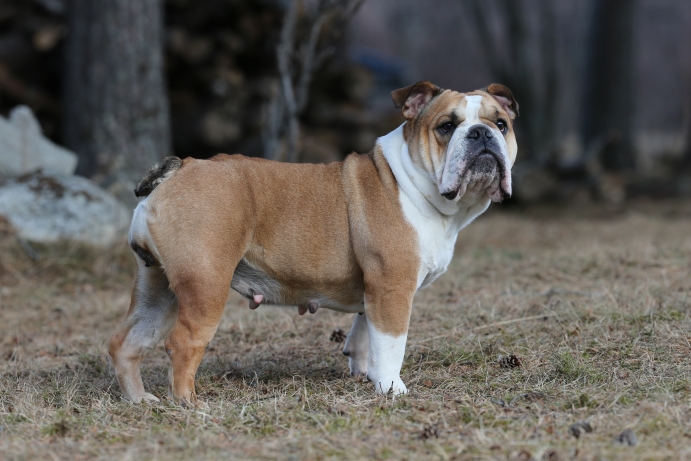
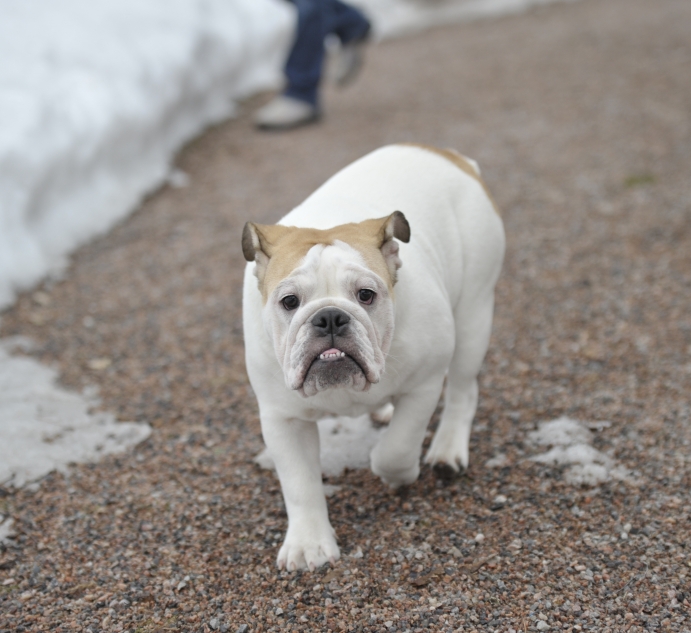
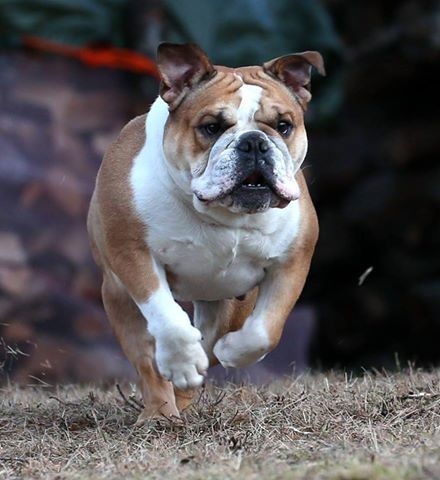
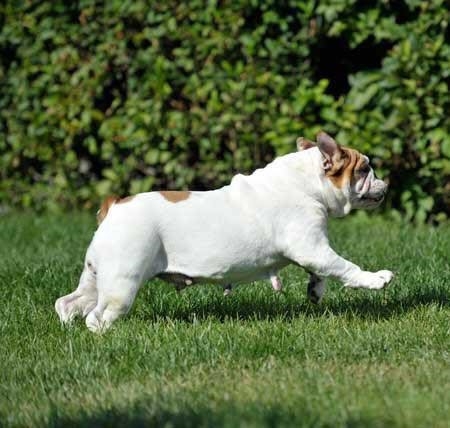
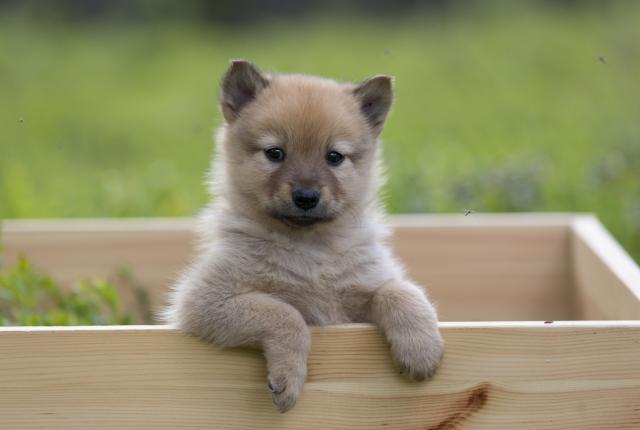

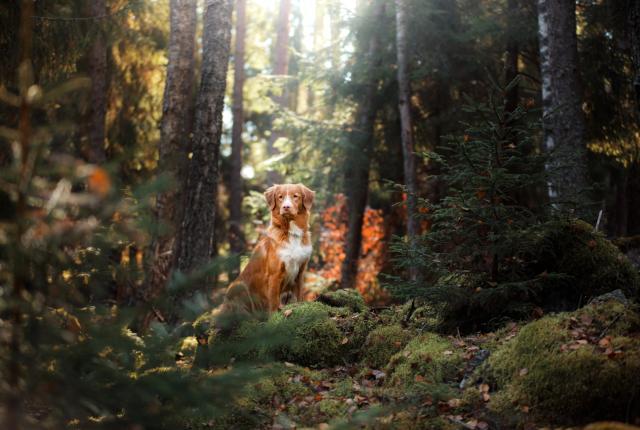
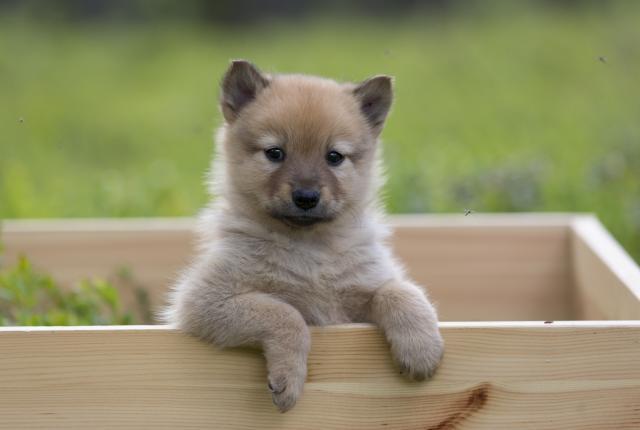
 Hau-Hau Champion
Hau-Hau Champion Agria
Agria